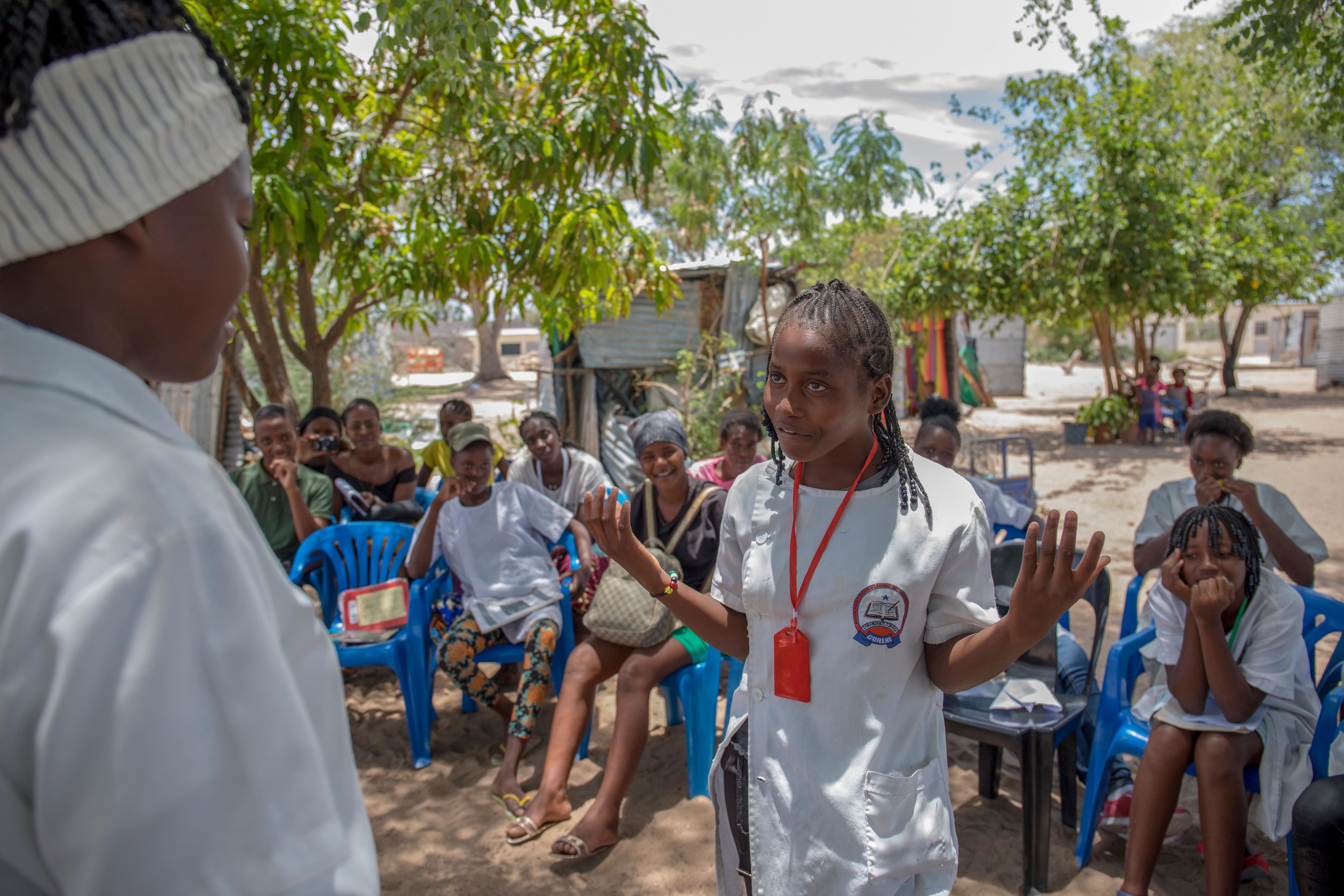AIDS 2022, the 24th International AIDS Conference aims to define future research agendas, shift latest evidence to action, and chart a new consensus on overcoming the HIV epidemic as a threat to public health and individual well-being.
Bold and ambitious actions needed to remove barriers limiting access to HIV services
July 21, 2022

Group 10, stage a play dealing sexual reproductive health issues in their community. The story telling game is part of female-led community groups, run with support from UNDP, UNFPA and the Global Fund to fight AIDS, Tuberculosis and Malaria.
NEW YORK — The world is not on track to meet the goal of ending AIDS by 2030, nor the 2025 targets of Sustainable Development Goal (SDG) 3. The cascading effects of the COVID-19 pandemic, the war in Ukraine and multiple, overlapping crises are contributing to a deadly backsliding and a costly decline in resources for HIV responses.
The upcoming 24th International AIDS Conference in Montreal, Canada (29 Jul - 2 Aug) with the theme ‘re-engage and follow the science’, aims to draw attention to the widening inequalities within and between countries in the HIV response— such as areas where greater investment is needed in person-centered service delivery and community led responses, and those where the needs of communities remain neglected or ignored.
Mandeep Dhaliwal, Director of UNDP’s HIV and Health Group stated, “The conference is happening at a time when we urgently need to step up efforts to get the HIV response back on track. We need bold and ambitious action and investments now to achieve the 10-10-10 targets* and remove societal barriers limiting access to HIV services, especially for key and vulnerable populations. In this regard, it is imperative to fully fund the Seventh Replenishment of the Global Fund to Fight Tuberculosis, AIDS and Malaria, to protect the gains and regain lost ground on HIV.”
UNDP will host three sessions on 27 July at AIDS 2022:
Connecting LGBTI+ and key population activists in Africa: This session aims to bridge the gap in Africa between the HIV response and LGBTI+ issues, looking specifically at how key populations and LGBTI+ activists can learn from one another and work more effectively in the years ahead.
Inclusive social protection for PLHIV and key populations: UNDP and ILO will launch a checklist on inclusive social protection for people living with HIV and key populations and discuss the results of the pilot assessments. The session will showcase good practice and strategies from different regions and countries.
Innovative strategies to counter criminalization and discriminatory laws: This session will highlight promising examples and good practice from communities and governments in developing and deploying innovative strategies and tactics to counter discriminatory and punitive laws, including criminalization. The session will also feature the initial findings of an evidence review and lessons from the independent evaluation of the Global Commission on HIV and the Law for achieving the 10-10-10 targets.
At the International AIDS Conference, UNDP as a partner of the International AIDS Society, will be engaged in a number of high-level side events. Key highlights are: UNAIDS satellite session on Save lives, decriminalize: Pathways to achieving the 10-10-10s, a symposium on Inclusion means involvement: Community engagement in research and a launch of technical brief on Transgender People and HIV in Prison.
UNDP is committed to regaining lost ground on HIV by supporting countries to implement the 2021 Political Declaration on HIV and the Global AIDS Strategy and, and advancing an equitable, global response that leaves no one behind, and reaches those left furthest behind first.
********
*Note to the editors: New global targets for 2025 put a special emphasis on creating the enabling environment for ending AIDS, identified in the 10-10-10 targets: that less than 10% of countries have punitive legal and policy conditions that prohibit or restrict access to services; less than 10% of key populations and people living with HIV face discrimination and stigma; and less than 10% of women, girls, people living with HIV and key populations face violence and gender inequality.
For media queries: Sangita Khadka, Communications Specialist, UNDP Bureau for Policy and Programme Support, New York | email: sangita.khadka@undp.org

 Locations
Locations

